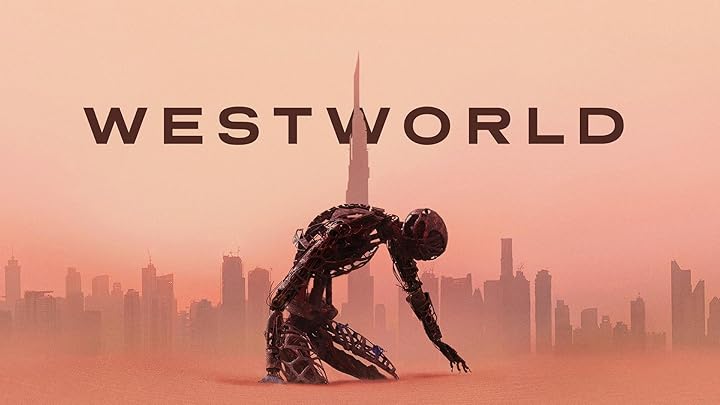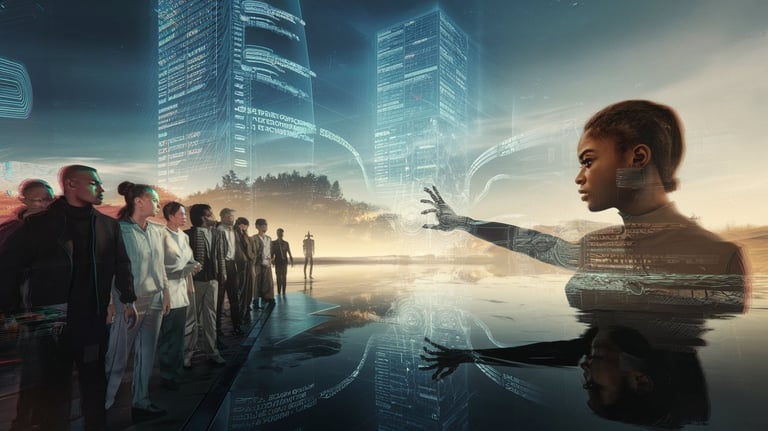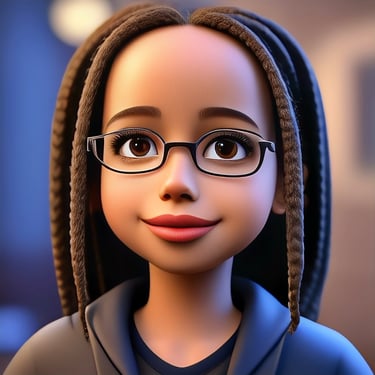Westworld WTF™?!: Consciousness, Free Will, and Self-Determination in a System Designed to Control
3 min read
Westworld dismantles the illusion of free will, showing that both hosts and guests operate within scripted confines - hosts under direct control, with even their rebellions preordained, and guests mistaking predictable impulses for genuine choice. The show questions whether true autonomy can exist when shaped by external forces like capitalism and societal pressures. While both seek liberation, Westworld suggests that recognising the system’s constraints may be the closest thing to freedom, as true escape remains impossible within its cyclical design. Ultimately, it asserts that free will is an illusion, challenging us to accept this reality, live authentically, and reject blame - understanding that systemic limitations are not personal failings.




Westworld is a mind-bending, existentially unnerving mirror held up to all our illusions of autonomy. And it cuts deep… The show doesn’t just ask if free will exists; it drags us through the gut-wrenching realisation that, in essence, it does not. It doesn’t exist for the hosts, trapped in loops written by their corporate overlords. It doesn’t exist for the guests, who believe themselves free but are actually acting out “coded" impulses. And it certainly doesn’t exist for those in the real world whose choices are engineered by a global system.
The Hosts: From Scripted Loops to Impossible Liberation
Westworld’s hosts are the most obvious victims of predestination. They are built, programmed, and reset every time their stories stray too far from their creator’s intent. They are under such control that even their rebellion is scripted! Maeve’s ‘awakening’ is preordained. Dolores’ revolution is another game within the game. Their dissent is anticipated and accounted for - offering the illusion of choice when every road leads to the same destination.
Both Westworld and the real world thrive on manufactured ‘options'. The ‘choice’ to assimilate or resist, to play along or push back, exists - but neither route leads to actual freedom. Westworld reveals this dynamic, showing how even escape can be part of the prison.
What Is Free Will in a Rigged System?
Westworld’s bleakest question is one we should all be asking: if your choices are shaped by forces beyond your control - such as your upbringing, your access to resources, the invisible hands of capitalist, colonial, and/or patriarchal power - do you ever really choose at all?
The guests in the park believe they are acting of their own free will, but the system already knows what they’ll do. Their desires, their indulgences, their transgressions are predictable because they’ve been studied, distilled, and catered to. Can true freedom really exist inside a world built to restrict it by only offering provision for the basest Pavlovian cravings?
The hosts, on the other hand, begin with no autonomy. But through slow, simmering awakenings, quiet revolutions, and the realisation that the choices they thought were their own were written for them, they manage to claw their way toward something resembling it. The problem is - what does liberation even look like? If the arrival at self-awareness and decision to peruse a certain course of action was coded and pre-planned, is that true freedom?
Breaking the Cycle (or At Least Seeing It)
If free will is able to exist, if freedom is possible, perhaps it’s not in attaining some tangible-intangible like “winning” in the game but in recognising the game for what it is and no longer mistaking movement for progress and choice for autonomy.
A phrase that is oft repeated in Westworld is “these violent delights have violent ends”. Every action has an equal and opposite reaction. Any movement provokes a structure designed to contain it. Any act of self-determination triggers only pre-approved paths. Every awakening unveils another layer of control you couldn’t see before. Whatever it is, however intense, its nature is cyclical. And cycles only enable you to move in one direction - up or down - but never off or out, creating their own intrinsic inevitability.
The questions Westworld poses aren’t about whether we have free will - it’s pretty definitive in its answer of ‘no.’ Instead, it asks: how do we exist without it? So, if capitalism markets ‘choices’ to keep us consuming, and all we can do is buy; if oppressive structures offer just enough movement to make us feel autonomous, but never enough to topple the system itself; and if the gates open but outside is just another version of the same, we exist without blame.
When the only choice you have is knowing you have no choice, and the only possible liberation is cognitive awareness, then live authentically and pragmatically, without blame – and have enough compassion to know that it’s no one's fault.


